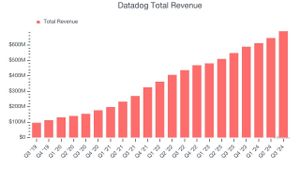France has officially expanded its identity verification system to include the France Identité application for passengers traveling on TGV INOUI and Intercités trains, starting from February 13, 2025. This government initiative allows travelers to use the app as proof of their identity and ticket validity during onboard controls, effectively reducing the need for physical documentation.
The new functionality, which enables riders to present their identity and ticket information with one simple action, was developed by SNCF Voyageurs and France Titres following extensive user feedback. According to the Ministry of the Interior, "Ce nouvel usage […] répond à une forte demande de simplification et de sécurité de la part des usagers. Ils peuvent désormais présenter leur identité et leur titre de transport en un seul geste." This statement highlights the app’s purpose—making the travel experience smoother for passengers.
To utilize the France Identité app, passengers must generate a secure QR code from their digital identity stored on their smartphones. This QR code contains necessary information such as the traveler’s name, surname, and date of birth, which is important for validating their ticket during inspections. Notably, the app is built to safeguard personal data, only sharing what is absolutely necessary, thereby protecting users from potential fraud or identity theft.
Jean-Stéphane Monnet, the director of operations for TGV, remarked, "France Identité va permettre de faciliter la vie de nos voyageurs," emphasizing the app's role in enhancing convenience for passengers. So far, more than 1.5 million individuals, all over the age of 18, have connected to this new service, indicating growing acceptance of digital identity solutions among the public.
Despite the clear advantages, the initiative has its limitations. Currently, only individuals who possess the new format of national identity cards, issued since 2021, can fully utilize the app. Anne-Gaëlle Baudouin, director general of France Titres, stated, "C’est plus simple, plus rapide et plus sécurisé," referring to how the new app simplifies the verification process. Yet, she pointed out, "À ce stade, le dispositif n’est accessible qu’aux personnes ayant une nouvelle carte d’identité," signifying the restriction to the updated ID holders.
Passengers will still need to show their boarding passes at access points to the platform, as the app's functionality does not extend to this part of the travel process, though it does promise to streamline control operations once onboard. The introduction of the France Identité app aims to address and potentially reduce the significant issue of ticket fraud, which costs SNCF approximately 200 million euros each year.
Feedback from travelers has been mixed. Some find the transition to a digital ID convenient and are already satisfied with the app’s capabilities, such as Louise, who praised the move toward digitization: "Aujourd’hui tout est numérisé. Avec toutes les données au même endroit, il n’y a pas de stress d’avoir oublié la carte physique." Meanwhile, others have expressed concerns about adopting another app and maintaining clarity between different travel applications, especially with existing services like SNCF Connect.
The France Identité application, available for free, allows users to manage their identification digitally and makes traveling on public transport more efficient. Passengers who use the new system have noted its ease and speed, which can significantly reduce wait times during inspections. With the ability to use the app offline, it caters to various connectivity scenarios, ensuring readiness for travel.
Following this launch, the SNCF has indicated plans for broader application of the France Identité system across multiple train services, including Ouigo, though the regional and suburban TER trains will continue to require paper tickets or alternative identification methods. This distinction highlights the current phase of implementation and the gradual transition toward streamlined travel experiences.
Overall, the response to the France Identité application has been positive, as it supports the modernization of identity verification methods within France's public transportation system. With the domestic travel environment rapidly digitizing, the app marks another step toward integrating technology for improved accessibility and security for all travelers.
By fostering this shift, the SNCF aims not only to alleviate passenger concerns over documentation but also significantly contribute to reducing fraudulent activities tied to train travel. Transitioning to technologies like the France Identité app is regarded as necessary for keeping pace with shifting societal expectations and travel norms.



